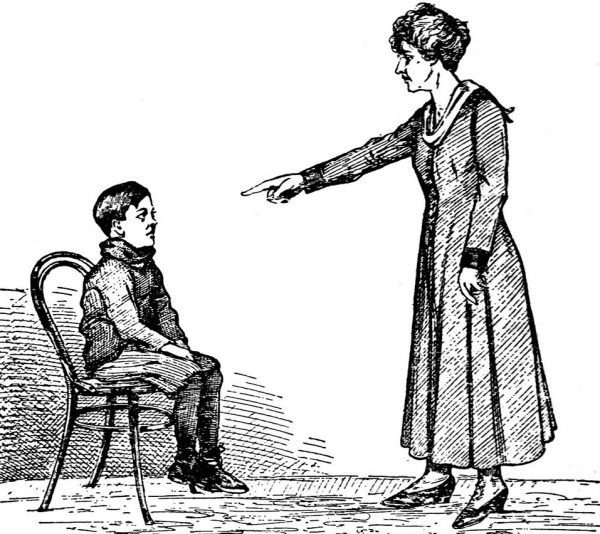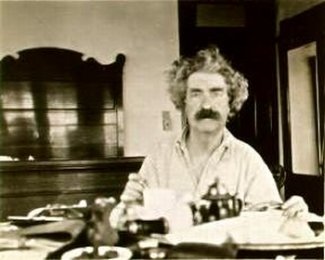Vitalist conservatism has more to offer than its critics let on.
Kiddie Scorn

Jeers won’t win the Right’s generational war.
Brad Thompson’s brilliant and amusing polemic, “The Rise and Fall of the Pajama-Boy Nietzscheans,” asks, in essence, what is to be done about kids today? In particular, what ought we to do about the rise of an anti-founding Right?
The Claremont Institute is known for its robust defenses of the American Founding. Some of the responses to Thompson already make that clear. But Thompson complains that Michael Anton, in his review of Bronze Age Pervert’s book Bronze Age Mindset, spends too much time explaining what BAP says, and not enough time criticizing it. Thompson, if I read him right, goes so far as to imply that Anton secretly sympathizes with BAP. Similarly, he faults Claremont for allowing BAP to publish a response to Anton at The American Mind.
In sum, Thompson charges Anton and Claremont with gross miscalculation. “Michael Anton is the super carrier who brought the virus of the reactionary Right into the bloodstream of the conservative intellectual movement.” That comment follows just after Thompson’s admission that “Anton’s conclusion just might be correct: ‘in the spiritual war for the hearts and minds of the disaffected youth on the right, conservatism is losing, BAPism is winning.’”
That’s the puzzle. What to do if BAPism, or other illiberal and un-American philosophies or religions, are winning the hearts and minds of this generation’s potential Kristols, Jaffas, and Buckleys?
Only Human
Anton, as I read him, is trying to be political—trying to draw in potential allies. Perhaps he even hopes, somehow, to moderate and educate young reactionaries who thought there was nowhere to go but BAP. Anton is also, to borrow a phrase from Harry Jaffa, taking a metaphorical 2×4 and smacking the complacent Right on the forehead: if this is what the kids are thinking, it’s a reality to be dealt with. It’s why, for example, supporting Jeb or Rubio in 2016 was folly. Stronger medicine was needed.
The wages of Jaffa’s old bugaboo, neoconservatism, are being paid in nihilism. In response, Anton seems to be trying to provide a BAPism by fire, so to speak. Denial will not help the situation. Any successful political strategy must meet people where they are.
But where are they? And to which ones can one appeal? Thompson suggests that the prudent thing would have been not to engage. I wonder if things look different to Thompson in South Carolina than they do from the Claremont Institute in California.
But there are also some questions of morality, nature, and the republic. And that also brings us back to Jaffa. Thompson suggests that his book and Jaffa’s New Birth of Freedom share a common cause, and, to a great degree, a common philosophy. He does allow, however, that there is daylight between himself and Jaffa: “Whereas I interpret the relationship between the moral laws and rights of nature in the founders’ thought somewhat differently than does Mr. Jaffa, our overall interpretations are largely in sympathy with one another.”
That “somewhat differently” opens a chasm. What might make the BAPists of interest to Claremont is that they have seen through Progressivism because they recognize that it is at war with human nature. The effort to reconstitute human society by transforming human behavior will fail, and in the process it will immiserate us by making it difficult for most of us to understand and pursue happiness.
Hence the unhappiness of so many in the younger generation. As Progressives claim to be the party of equality, and as BAPists recognize that Progressivism is a lie, the Kidz have concluded that the idea of equality is the big lie in general. Harry Jaffa, of course, spent much of his career refuting that charge and working to explain the true meaning of equality. Jaffa also knew that equality will always have a strong moral/political appeal in America. But, given the Progressive takeover of our education system, very few Kidz today have any idea what equality, in the true sense, might be. How, then, to reach them?
Truth and Lies
Truth carries its own weight. As Jefferson put it in the Virginia Statute Establishing Religious Liberty: “truth is great and will prevail if left to herself;…she is the proper and sufficient antagonist to error, and has nothing to fear from the conflict, unless by human interposition disarmed of her natural weapons, free argument and debate, errors ceasing to be dangerous when it is permitted freely to contradict them.”
I suspect that Anton, having recognized this, sees potential allies. The goal was as much to introduce the BAPists to Claremont as it was the reverse. Thompson, of course, might be right that that was a gross miscalculation. But if that’s what it was, why so much ire? As the A Team’s Mr. T put it (albeit with a different meaning), we should pity the fools, and not excoriate them.
I take Anton’s criticism of the aristocratic tendencies of BAP more seriously than I suspect Thompson does. The task he sets out for himself is to tame these would-be American Princes. He is trying to move readers from an instinctive reaction against Progressivism to a rational commitment to the principles of 1776. But perhaps it cannot be done with this group, as Thompson believes.
Then again, I wonder if Jaffa’s very public concern with public morality might incline a Claremont person to see virtue in someone who knows that Progressivism is a lie. It is a lie about politics because it is a lie about human nature. Jaffa held that any program that thinks it can create a world in which the difference between male and female is trivial is, well, insane. Moreover, it is barbaric and needs to be fought.
So what to do about the kids today? In the founding era, of course, the question came up both prospectively and retrospectively. In the former sense, early Americans worried about how to sustain the new republic into the future. Looking back, they asked how it was that they were able to create such a republic in the first place. What had shaped this people before 1776?
And in the middle was slavery—what to do about that glaring contradiction of the principles of 1776. All along, patriots asserted that, in the words of Massachusetts’ Declaration of Rights, “A frequent recurrence to the fundamental principles of the constitution, and a constant adherence to those of piety, justice, moderation, temperance, industry, and frugality, are absolutely necessary to preserve the advantages of liberty and to maintain a free government.”
To do that we must preach it to the heathen in the cities, and, nowadays, on the interwebs, with Lincolnesque confidence in the right as God gives us to see it. Thompson, in his latest book, is trying to do that. For this we ought to thank him. But writing and talking are one thing, and building a movement is another. That is, and has always been, the rub.
The American Mind presents a range of perspectives. Views are writers’ own and do not necessarily represent those of The Claremont Institute.
The American Mind is a publication of the Claremont Institute, a non-profit 501(c)(3) organization, dedicated to restoring the principles of the American Founding to their rightful, preeminent authority in our national life. Interested in supporting our work? Gifts to the Claremont Institute are tax-deductible.
America once recognized the common—and highest—good.
There there, Pepe—it’s gonna be O.K.
No perceptivity, no public-mindedness, no plan.
We are inclined, but not fated, to decadence.
On C. Bradley Thompson and Harry V. Jaffa.






